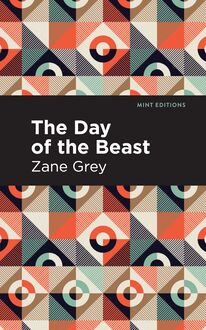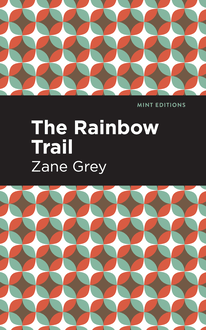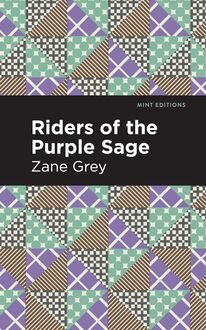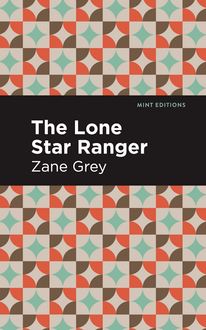-
 Univers
Univers
-
 Ebooks
Ebooks
-
 Livres audio
Livres audio
-
 Presse
Presse
-
 Podcasts
Podcasts
-
 BD
BD
-
 Documents
Documents
-
- Cours
- Révisions
- Ressources pédagogiques
- Sciences de l’éducation
- Manuels scolaires
- Langues
- Travaux de classe
- Annales de BEP
- Etudes supérieures
- Maternelle et primaire
- Fiches de lecture
- Orientation scolaire
- Méthodologie
- Corrigés de devoir
- Annales d’examens et concours
- Annales du bac
- Annales du brevet
- Rapports de stage
La lecture à portée de main
Vous pourrez modifier la taille du texte de cet ouvrage
Découvre YouScribe en t'inscrivant gratuitement
Je m'inscrisDécouvre YouScribe en t'inscrivant gratuitement
Je m'inscrisEn savoir plus
Vous pourrez modifier la taille du texte de cet ouvrage
En savoir plus

Description
Buck Duane is a famous gunfighter and outlaw, who’s recruited by the Texas Rangers to help clean up a border town plagued by crime. It’s a rare opportunity to do good in the eyes of the law and its people. The son of an outlaw, Buck Duane, unexpectedly follows in his father’s footsteps when he kills a man in self-defense. Despite the context, he chooses to run from the authorities and goes into hiding. He encounters many dark and violent characters, but refuses to abandon his moral code. He only kills when necessary and never for sport. Buck is given a rare shot at redemption requiring him to rid a Texas town of murderers and thieves. The Lone Star Ranger is a transformative story about a tortured man’s internal conflict. Buck Duane’s mental and emotional struggle dictates every facet of his life. It’s an insightful character study that tracks the evolution from outlaw to hero. With an eye-catching new cover, and professionally typeset manuscript, this edition of The Lone Star Ranger is both modern and readable.
Sujets
Informations
| Publié par | Mint Editions |
| Date de parution | 10 mai 2021 |
| Nombre de lectures | 0 |
| EAN13 | 9781513285603 |
| Langue | English |
Informations légales : prix de location à la page 0,0500€. Cette information est donnée uniquement à titre indicatif conformément à la législation en vigueur.
Extrait
The Lone Star Ranger
Zane Grey
The Lone Star Ranger was first published in 1915.
This edition published by Mint Editions 2021.
ISBN 9781513280585 | E-ISBN 9781513285603
Published by Mint Editions ®
minteditionbooks .com
Publishing Director: Jennifer Newens
Design & Production: Rachel Lopez Metzger
Project Manager: Micaela Clark
Typesetting: Westchester Publishing Services
C ONTENTS B OOK I. T HE O UTLAW I II III IV V VI VII VIII IX X XI XII XIII XIV B OOK II. T HE R ANGER XV XVI XVII XVIII XIX XX XXI XXII XXIII XXIV XXV
BOOK I
THE OUTLAW
I
So it was in him, then—an inherited fighting instinct, a driving intensity to kill. He was the last of the Duanes, that old fighting stock of Texas. But not the memory of his dead father, nor the pleading of his soft-voiced mother, nor the warning of this uncle who stood before him now, had brought to Buck Duane so much realization of the dark passionate strain in his blood. It was the recurrence, a hundred-fold increased in power, of a strange emotion that for the last three years had arisen in him.
“Yes, Cal Bain’s in town, full of bad whisky an’ huntin’ for you,” repeated the elder man, gravely.
“It’s the second time,” muttered Duane, as if to himself.
“Son, you can’t avoid a meetin’. Leave town till Cal sobers up. He ain’t got it in for you when he’s not drinkin’.”
“But what’s he want me for?” demanded Duane. “To insult me again? I won’t stand that twice.”
“He’s got a fever that’s rampant in Texas these days, my boy. He wants gun-play. If he meets you he’ll try to kill you.”
Here it stirred in Duane again, that bursting gush of blood, like a wind of flame shaking all his inner being, and subsiding to leave him strangely chilled.
“Kill me! What for?” he asked.
“Lord knows there ain’t any reason. But what’s that to do with most of the shootin’ these days? Didn’t five cowboys over to Everall’s kill one another dead all because they got to jerkin’ at a quirt among themselves? An’ Cal has no reason to love you. His girl was sweet on you.”
“I quit when I found out she was his girl.”
“I reckon she ain’t quit. But never mind her or reasons. Cal’s here, just drunk enough to be ugly. He’s achin’ to kill somebody. He’s one of them four-flush gun-fighters. He’d like to be thought bad. There’s a lot of wild cowboys who’re ambitious for a reputation. They talk about how quick they are on the draw. They ape Bland an’ King Fisher an’ Hardin an’ all the big outlaws. They make threats about joinin’ the gangs along the Rio Grande. They laugh at the sheriffs an’ brag about how they’d fix the rangers. Cal’s sure not much for you to bother with, if you only keep out of his way.”
“You mean for me to run?” asked Duane, in scorn.
“I reckon I wouldn’t put it that way. Just avoid him. Buck, I’m not afraid Cal would get you if you met down there in town. You’ve your father’s eye an’ his slick hand with a gun. What I’m most afraid of is that you’ll kill Bain.”
Duane was silent, letting his uncle’s earnest words sink in, trying to realize their significance.
“If Texas ever recovers from that fool war an’ kills off these outlaws, why, a young man will have a lookout,” went on the uncle. “You’re twenty-three now, an’ a powerful sight of a fine fellow, barrin’ your temper. You’ve a chance in life. But if you go gun-fightin’, if you kill a man, you’re ruined. Then you’ll kill another. It’ll be the same old story. An’ the rangers would make you an outlaw. The rangers mean law an’ order for Texas. This even-break business doesn’t work with them. If you resist arrest they’ll kill you. If you submit to arrest, then you go to jail, an’ mebbe you hang.”
“I’d never hang,” muttered Duane, darkly.
“I reckon you wouldn’t,” replied the old man. “You’d be like your father. He was ever ready to draw—too ready. In times like these, with the Texas rangers enforcin’ the law, your Dad would have been driven to the river. An’, son, I’m afraid you’re a chip off the old block. Can’t you hold in—keep your temper—run away from trouble? Because it’ll only result in you gettin’ the worst of it in the end. Your father was killed in a street-fight. An’ it was told of him that he shot twice after a bullet had passed through his heart. Think of the terrible nature of a man to be able to do that. If you have any such blood in you, never give it a chance.”
“What you say is all very well, uncle,” returned Duane, “but the only way out for me is to run, and I won’t do it. Cal Bain and his outfit have already made me look like a coward. He says I’m afraid to come out and face him. A man simply can’t stand that in this country. Besides, Cal would shoot me in the back some day if I didn’t face him.”
“Well, then, what’re you goin’ to do?” inquired the elder man.
“I haven’t decided—yet.”
“No, but you’re comin’ to it mighty fast. That damned spell is workin’ in you. You’re different to-day. I remember how you used to be moody an’ lose your temper an’ talk wild. Never was much afraid of you then. But now you’re gettin’ cool an’ quiet, an’ you think deep, an’ I don’t like the light in your eye. It reminds me of your father.”
“I wonder what Dad would say to me to-day if he were alive and here,” said Duane.
“What do you think? What could you expect of a man who never wore a glove on his right hand for twenty years?”
“Well, he’d hardly have said much. Dad never talked. But he would have done a lot. And I guess I’ll go down-town and let Cal Bain find me.”
Then followed a long silence, during which Duane sat with downcast eyes, and the uncle appeared lost in sad thought of the future. Presently he turned to Duane with an expression that denoted resignation, and yet a spirit which showed wherein they were of the same blood.
“You’ve got a fast horse—the fastest I know of in this country. After you meet Bain hurry back home. I’ll have a saddle-bag packed for you and the horse ready.”
With that he turned on his heel and went into the house, leaving Duane to revolve in his mind his singular speech. Buck wondered presently if he shared his uncle’s opinion of the result of a meeting between himself and Bain. His thoughts were vague. But on the instant of final decision, when he had settled with himself that he would meet Bain, such a storm of passion assailed him that he felt as if he was being shaken with ague. Yet it was all internal, inside his breast, for his hand was like a rock and, for all he could see, not a muscle about him quivered. He had no fear of Bain or of any other man; but a vague fear of himself, of this strange force in him, made him ponder and shake his head. It was as if he had not all to say in this matter. There appeared to have been in him a reluctance to let himself go, and some voice, some spirit from a distance, something he was not accountable for, had compelled him. That hour of Duane’s life was like years of actual living, and in it he became a thoughtful man.
He went into the house and buckled on his belt and gun. The gun was a Colt.45, six-shot, and heavy, with an ivory handle. He had packed it, on and off, for five years. Before that it had been used by his father. There were a number of notches filed in the bulge of the ivory handle. This gun was the one his father had fired twice after being shot through the heart, and his hand had stiffened so tightly upon it in the death-grip that his fingers had to be pried open. It had never been drawn upon any man since it had come into Duane’s possession. But the cold, bright polish of the weapon showed how it had been used. Duane could draw it with inconceivable rapidity, and at twenty feet he could split a card pointing edgewise toward him.
Duane wished to avoid meeting his mother. Fortunately, as he thought, she was away from home. He went out and down the path toward the gate. The air was full of the fragrance of blossoms and the melody of birds. Outside in the road a neighbor woman stood talking to a countryman in a wagon; they spoke to him; and he heard, but did not reply. Then he began to stride down the road toward the town.
Wellston was a small town, but important in that unsettled part of the great state because it was the trading-center of several hundred miles of territory. On the main street there were perhaps fifty buildings, some brick, some frame, mostly adobe, and one-third of the lot, and by far the most prosperous, were saloons. From the road Duane turned into this street. It was a wide thoroughfare lined by hitching-rails and saddled horses and vehicles of various kinds. Duane’s eye ranged down the street, taking in all at a glance, particularly persons moving leisurely up and down. Not a cowboy was in sight. Duane slackened his stride, and by the time he reached Sol White’s place, which was the first saloon, he was walking slowly. Several people spoke to him and turned to look back after they had passed. He paused at the door of White’s saloon, took a sharp survey of the interior, then stepped inside.
The saloon was large and cool, full of men and noise and smoke. The noise ceased upon his entrance, and the silence ensuing presently broke to the clink of Mexican silver dollars at a monte table. Sol White, who was behind the bar, straightened up when he saw Duane; then, without speaking, he bent over to rinse a glass. All eyes except those of the Mexican gamblers were turned upon Duane; and these glances were keen, speculative, questioning. These men knew Bain was looking for trouble; they probably had heard his boasts. But what did Duane intend to do? Several of the cowboys and ranchers present exchanged glances. Duane had been weighed by unerring Texas instinct, by men who all packed guns. The boy was the son of his father. Whereupon they greeted him and returned to their drinks and cards. Sol White stood with his big red hands out upon the bar; he was a tall, raw-boned Texan with a long mustache waxed to sharp points.
“Howdy, Buck,” was his greeting to Duane. He spoke carelessly and avert
-
 Univers
Univers
-
 Ebooks
Ebooks
-
 Livres audio
Livres audio
-
 Presse
Presse
-
 Podcasts
Podcasts
-
 BD
BD
-
 Documents
Documents
-
Jeunesse
-
Littérature
-
Ressources professionnelles
-
Santé et bien-être
-
Savoirs
-
Education
-
Loisirs et hobbies
-
Art, musique et cinéma
-
Actualité et débat de société
-
Jeunesse
-
Littérature
-
Ressources professionnelles
-
Santé et bien-être
-
Savoirs
-
Education
-
Loisirs et hobbies
-
Art, musique et cinéma
-
Actualité et débat de société
-
Actualités
-
Lifestyle
-
Presse jeunesse
-
Presse professionnelle
-
Pratique
-
Presse sportive
-
Presse internationale
-
Culture & Médias
-
Action et Aventures
-
Science-fiction et Fantasy
-
Société
-
Jeunesse
-
Littérature
-
Ressources professionnelles
-
Santé et bien-être
-
Savoirs
-
Education
-
Loisirs et hobbies
-
Art, musique et cinéma
-
Actualité et débat de société
- Cours
- Révisions
- Ressources pédagogiques
- Sciences de l’éducation
- Manuels scolaires
- Langues
- Travaux de classe
- Annales de BEP
- Etudes supérieures
- Maternelle et primaire
- Fiches de lecture
- Orientation scolaire
- Méthodologie
- Corrigés de devoir
- Annales d’examens et concours
- Annales du bac
- Annales du brevet
- Rapports de stage










